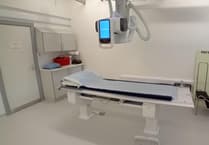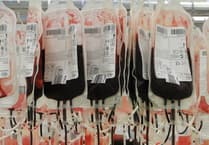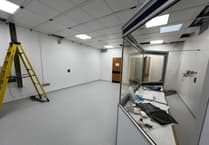The Covid-19 restrictions we have all followed to keep Wales safe during the pandemic have been eased further this week, giving us hope of a return to normality at last, writes Welsh Government Health Minister Eluned Morgan.
The NHS has continued to see as many people as possible during the pandemic and is always here for those in need as normality returns. Social care services have continued to care for our most vulnerable throughout.
However, the scale of the challenge facing the NHS and the social care sector is significant and many of the services we use will have changed. Some of these service changes, such as an increased use of remote consultations, are here to stay.
Other service changes, such as restrictions on hospital and care home visiting, while temporary, remain in place in order to protect ill or vulnerable people for whom Covid-19 could still be serious. For the same reason, it is still a legal requirement to wear a face covering in health and social care settings.
Health and care staff are being encouraged to continue to take precautions to limit the spread of Covid-19, such as testing regularly with lateral flow tests, self-isolating if positive and wearing masks.
The priority for the health service is patient safety, and all decisions about who is seen, when, and how, will prioritise those most in clinical need. This means you may be offered an appointment with a different person to one you usually see, or in a different place, and we ask that you are flexible where possible.
Social care services will be balancing the social needs and mental wellbeing of residents with the need to protect the most vulnerable in society from the ongoing presence of Covid-19.
The NHS faces an enormous challenge in tackling the backlog of treatment that has built up during the pandemic, and social care is also under extreme pressure
We all still have a very important role to play as we emerge from the pandemic.
By wearing a face covering in health and social care settings you will be helping to protect others around you, particularly those who are vulnerable.
Giving people space will also help to reduce the spread of infection, as well maintaining good hand hygiene by washing or sanitising your hands. Meeting outdoors is less risky than meeting indoors, but when you are inside, increase ventilation and let fresh air in to reduce risk of infection.
These behaviours not only protect us from COVID-19, but from other respiratory infections such as flu and norovirus.
It is strongly advised that you self-isolate and take a lateral flow test if you have any symptoms of Covid-19.
Vaccination is still the best defence against serious illness from Covid, so please make sure you get your jabs, including boosters.
Unless urgent, call or go online to 111, or ask your pharmacists for advice, before requesting a GP appointment, going to A&E or calling an ambulance
You can help ease pressure on the NHS by looking after your physical health and your wellbeing. Even small lifestyle changes can lead to better physical and mental health.
The pandemic has affected many people’s mental health and wellbeing, with anxiety levels higher than usual, particularly when restrictions were tight. Support remains available from the Mental Health Helpline for Wales, C.A.L.L, on Freephone 0800 132 737.
NHS and social care staff have worked tirelessly to keep Wales safe during the pandemic. They are now facing enormous pressures to tackle the backlog the pandemic created, and need everyone to show respect and patience towards staff.
All requests for visiting in health and care settings will be made at a local level by those providing the service.
Clinical and care settings are different from other indoor public settings like pubs because patients and residents are at greater risk from COVID because they can become seriously ill if they get the virus.
We must remember that while community cases are high again the risk of transmission in health and care settings, nosocomial transmission, is also high.
We know that this may be tough on family and friends but we must continue to ask people to visit with a clear purpose and not put their loved ones at risk of catching this terrible virus.
COVID has not gone away and we need to continue to contain it and help the most vulnerable people in our communities.





Comments
This article has no comments yet. Be the first to leave a comment.